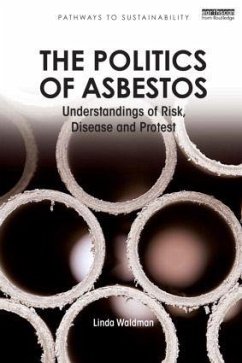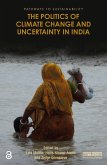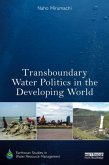Around the world, asbestos-related diseases are on the increase. Meanwhile, in many newly-industrializing and developing countries, asbestos use continues unabated. This book, based on anthropological fieldwork in the UK, India and South Africa, explores people's understandings of their illness, risk, compensation and regulation, contrasting these personal and community narratives with formal medical and legal understandings. Linda Waldman shows how the domination of medical and legal framings of risk and disease over those of workers, sufferers and activists can narrow the responses chosen by government. This provides important lessons for researchers, policy makers and regulators, demonstrating that opening up to alternative understandings can create more effective policy responses to move towards sustainability and social justice. Published in association with the Economic and Social Research Council (ESRC).
Hinweis: Dieser Artikel kann nur an eine deutsche Lieferadresse ausgeliefert werden.
Hinweis: Dieser Artikel kann nur an eine deutsche Lieferadresse ausgeliefert werden.








